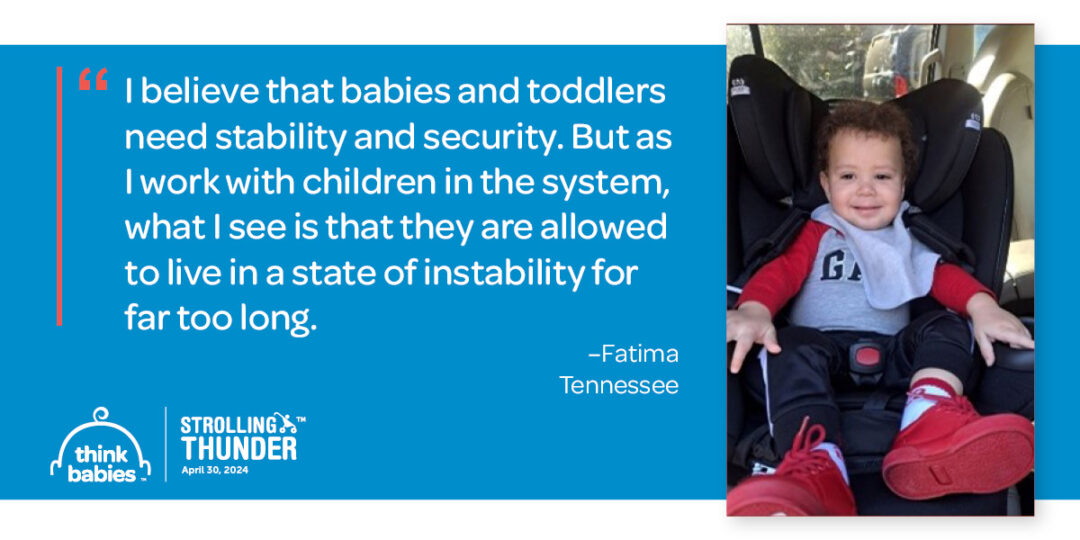The Infant-Toddler Court Program offers a prevention-focused public health response for families with infants and toddlers involved in the child welfare system. The program brings together judges and local child welfare professionals as part of a cross-sector team committed to addressing the unique, age-appropriate needs of children at risk of abuse or neglect. This model program works. National evaluation studies have demonstrated wide-ranging benefits, including reduced time in foster care, quicker paths to permanency, prevention of repeat maltreatment, stronger connections to community services, and higher reunification rates. Learn more
Babies need Congress to
Fully fund the Infant-Toddler Court Program to both prevent young children from entering the child welfare system when possible and prioritize their path to safe, permanent homes; and oppose cuts to essential funding for babies in, or at risk of entering, the child welfare system, including Temporary Assistance for Needy Families (TANF), the Social Services Block Grant (SSBG), Medicaid, and Early Head Start.

